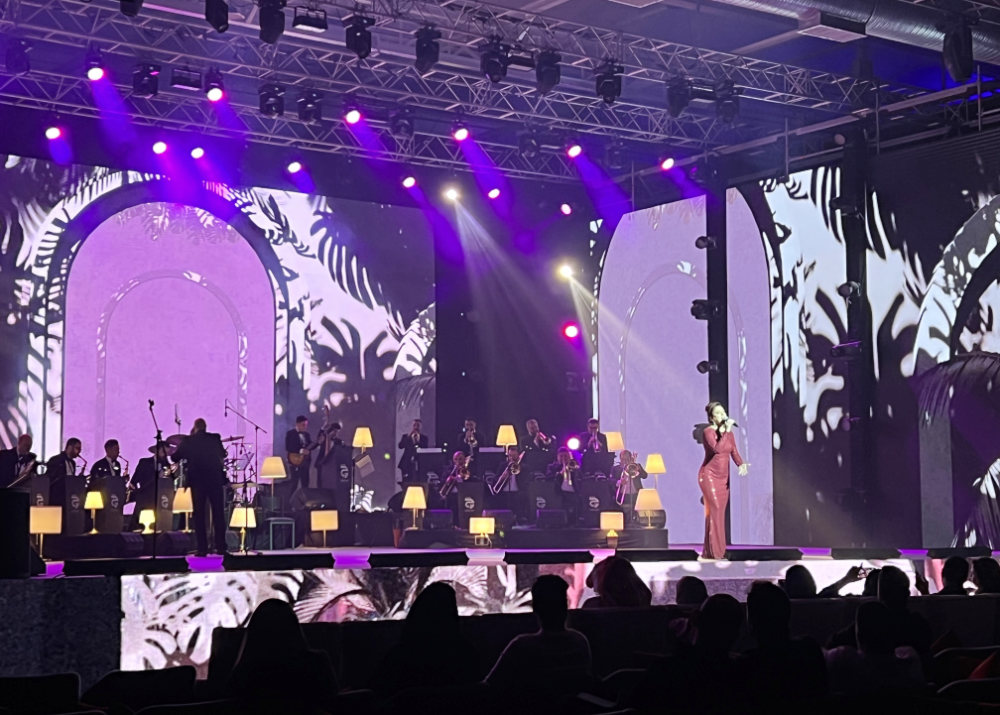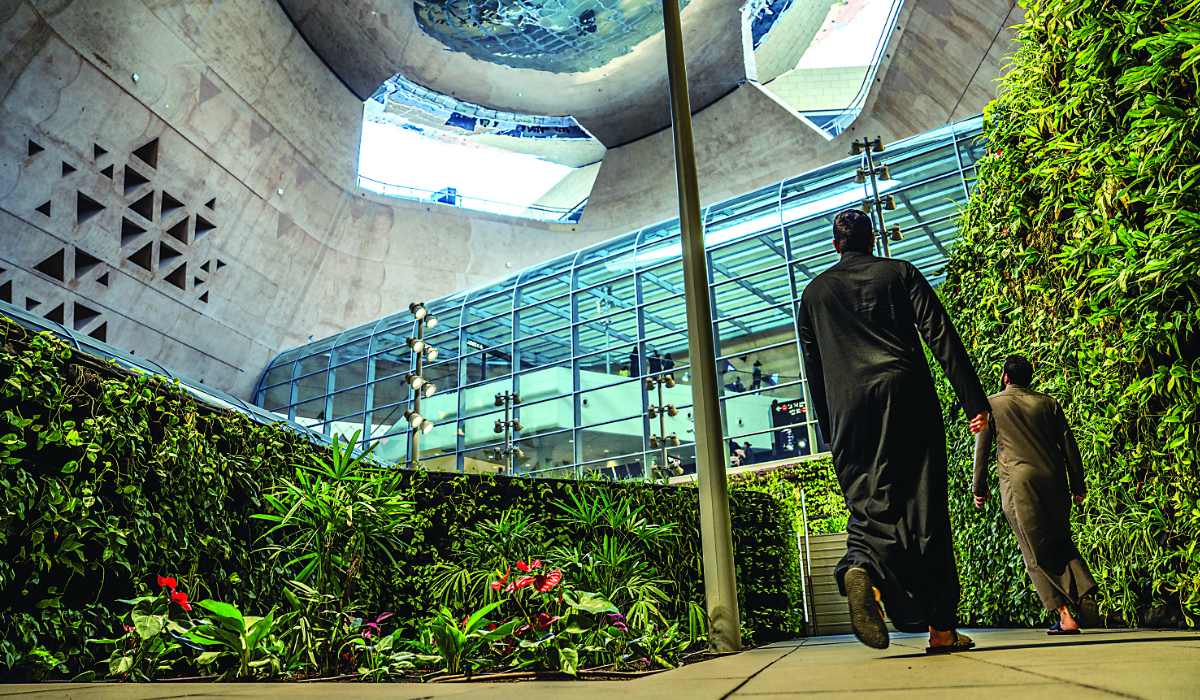RIYADH: “A Jazzy Tale,” a presentation of the history of jazz through live performances and dance, was hosted by the Ministry of Culture in Riyadh Front’s Culture Square.
The ministry and the Quality of Life Program joined together with its three creators, Mohamad El-Hajj, Elie Fleyhan, and Zied Zouari, to bring this show to life.
“‘A Jazzy Tale’ is an educational musical that showcases the development of jazz from its very early days, the different sources of inspiration it got, its evolution through time, and how it was affected by other types of music till our current day,” Mohamad El-Hajj told Arab News.
“Jazz is about the different types of instruments, how the music can blend and, within harmony, create this beautiful fusion,” he explained.
The show consisted of songs from the different eras as jazz evolved over time through interacting with other genres of music.
HIGHLIGHT
The songs performed include George Gershwin’s ‘Summertime’ from 1935, ‘Whatever Lola Wants’ from 1955, and ‘New York, New York,’ the 1977 song that Frank Sinatra made a popular hit.
“This is reflected with every single detail in the show from the band, the music choice, the singers, the dancers, their costumes, the choreography,” Fleyhan said.
Two live singers, accompanied by a jazz band and dancers, created breathtaking musical performances that paid tribute to the timeline and development of jazz.
The songs performed include George Gershwin’s “Summertime” from 1935, “Whatever Lola Wants” from 1955, and “New York, New York,” the 1977 song that Frank Sinatra made a popular hit.
“It showcases how jazz evolved over time using songs, screen content, choreography, and scenography,” El-Hajj said.
Zouari, the third co-creator of “A Jazzy Tale,” said that the whole musical came to life in just under a month.
“The most difficult part was that we had the musicians between London and Armenia. We were here based in Saudi, the dancers and the choreography were done in Dubai, so everything was done online,” Zouari said.
The creators explained that the show focuses on the evolution of jazz through its relation to human feelings and how human feelings are reflected in jazz songs.
“We wanted to showcase this type of evolution because, at the end of the day, the purpose of the whole thing is to educate people about jazz and increase the fan base here in the Kingdom,” El Hajj said.
The educational aspect of “A Jazzy Tale” did not end with the show. Following each show the ministry offered a program for those who interested in lights, sound, performing arts, direction and all aspects of show production.
“What’s more beautiful about this project, is that it’s entertaining but mostly educational. The educational part of it is so important because we’re giving opportunities for young students or art lovers or practitioners to come and meet some of our crew,” Fleyhan said.
“We usually have workshops for local students where they get to meet the dancers, the choreographers, the technicians, they can ask questions and they have workshops to learn how from their experience in the field.”


































